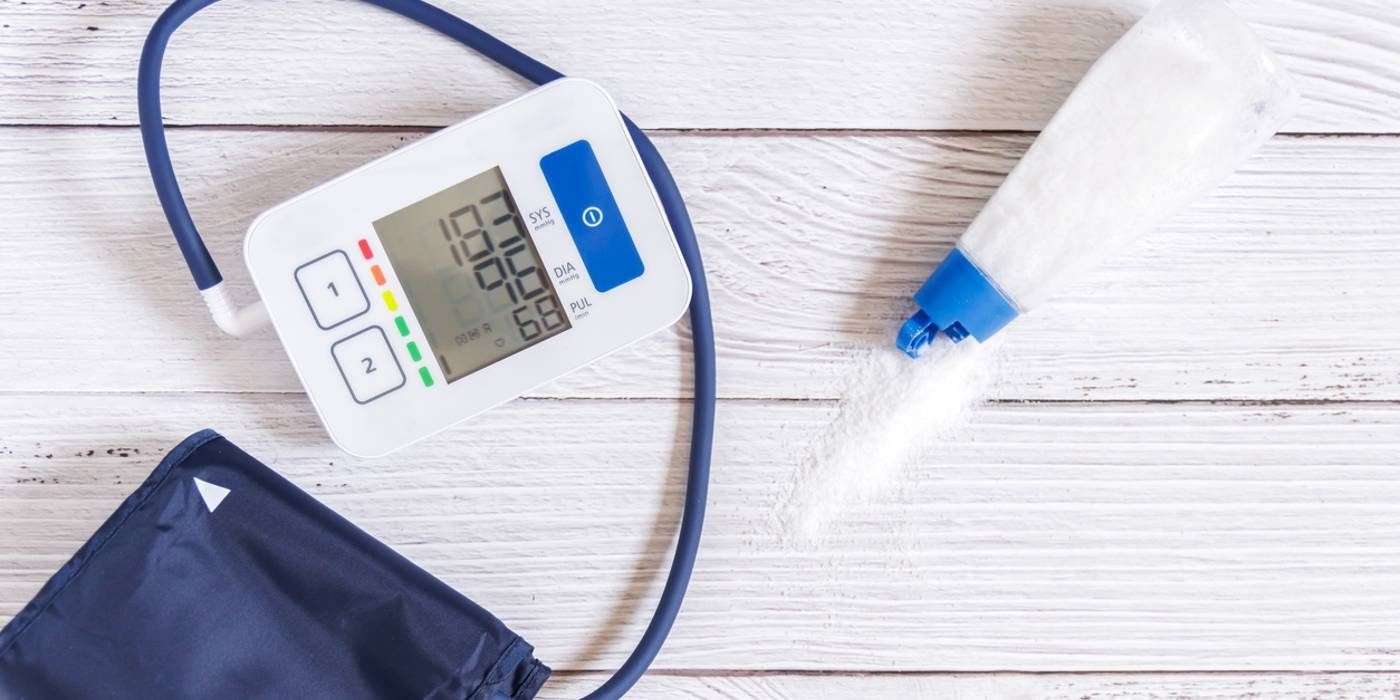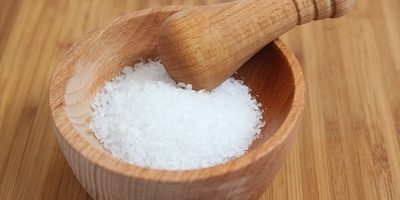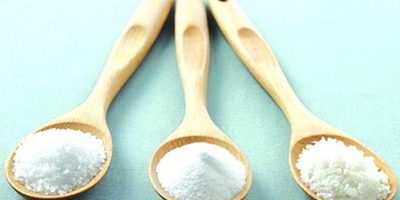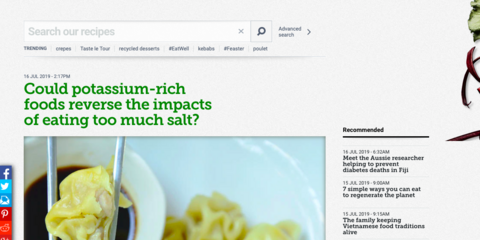
Boosting potassium is key for blood pressure control, study suggests
More than two thirds of blood pressure lowering effect of salt substitute due to the added potassium
While reducing salt intake has been the focus of dietary advice to control high blood pressure (hypertension), a new study suggests that upping your potassium intake can be at least as important.
The new research, published today in the Journal of Human Hypertension1, provides insight into the central role of potassium in managing a condition that kills more than eleven million2 people every year.
Lead author Dr Liping Huang, Research Fellow at The George Institute, said that the effects on blood pressure of both dietary sodium and dietary potassium have both been known for a long time. But only with recent work on potassium-enriched salt substitutes has the huge potential for increasing dietary potassium become a focus.
“High levels of sodium intake and low levels of potassium intake are widespread, and both are linked to high blood pressure and greater risk of stroke, heart disease and premature death,” she said.
“Using a salt substitute where part of the sodium chloride is replaced with potassium chloride addresses both problems at once. But the relative contributions of sodium reduction versus potassium supplementation were not well understood.”
Researchers analysed data from The George Institute’s large-scale randomised trial, the Salt Substitute and Stroke Study (SSaSS), which involved 20,995 participants followed for five years. The study showed clear reductions in the risk of stroke (14%), major cardiovascular events (13%) and premature death (12%) from switching regular salt for potassium-enriched salt.
The researchers based their analyses on the ‘gold standard’ measure of sodium and potassium in the urine of trial participants. These data were combined with other external data sources that describe the dose-response relationships between changes in sodium, potassium and blood pressure. They used a range of different data sets and different methods to double-check their findings.
They found that the supplementary potassium accounted for between 61% and 88% of the blood pressure lowering effects recorded in the trial. In every case, the results indicated that the majority of the blood pressure fall was attributable to the increase in dietary potassium rather than the fall in dietary sodium.
“We have always known that potassium has a role to play in blood pressure control, but until we did these analyses, we didn’t realise just how important it could be,” Dr Huang said. “The findings in this study may be particularly pronounced because people started at low levels of potassium consumption, but there are probably billions of people around the world with similar consumption levels,” she added.
Potassium is an essential mineral found in a variety of whole foods, including legumes, nuts, leafy green vegetables and fruits such as bananas, kiwis and dates. High levels of potassium are one of the reasons fresh fruits and vegetables are so good for you. Food processing tends to reduce the amount of potassium in products, and it is often replaced by sodium - a cheaper ingredient.
Current dietary guidelines recommend a potassium intake of more than 3.5 g/day, but a recent study3 found global mean potassium intake was just 2.25 g/day, with only 35% of the global population estimated to achieve this target. It also showed that none of the included 52 countries reported combined intakes of sodium and potassium that met World Health Organisation targets.
Dr Huang said that the number of people living with hypertension had doubled in the past 30 years to about 1.3 billion and it kills around 20 people every minute.
“People find it hard to stick to dietary changes recommended to reduce sodium and increase potassium,” she said.
“Salt substitutes are particularly interesting in this regard, because most people can make the switch to potassium-enriched salt without much difficulty - in our SSaSS trial more than 90 per cent of participants assigned to use the salt substitute were still using it five years on.”
“With potassium-enriched salt substitutes, we have a highly feasible and low-cost opportunity to generate a massive global health benefit,” Dr Huang added.
The weight of the evidence has prompted a call4 to include recommendations on low-sodium potassium-enriched salt in hypertension treatment guidelines by an international group of experts last month in the American Heart Association’s scientific journal Hypertension.
References
- Huang L, Li Q, Wu JHY et al. The contribution of sodium reduction and potassium increase to the blood pressure lowering observed in the Salt Substitute and Stroke Study. Journal of Human Hypertension 2024. https://www.nature.com/articles/s41371-024-00896-4
- Vaduganathan, M, Mensah, G, Turco, J. et al. The Global Burden of Cardiovascular Diseases and Risk: A Compass for Future Health. J Am Coll Cardiol. 2022 Dec, 80 (25) 2361–2371.
- Reddin, C., Ferguson, J., Murphy, R. et al. Global mean potassium intake: a systematic review and Bayesian meta-analysis. Eur J Nutr 2023 62, 2027–2037
- The George Institute for Global Health. Accessed February 2024 https://www.georgeinstitute.org.au/media-releases/potassium-enriched-sa…








